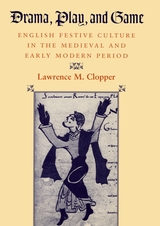Al-Ghazali and the Ashárite School
Duke University Press, 1994
Cloth: 978-0-8223-1427-1
Cloth: 978-0-8223-1427-1
ABOUT THIS BOOK | AUTHOR BIOGRAPHY | REVIEWS
ABOUT THIS BOOK
Widely regarded among students of medieval thought as the most important of the medieval Islamic thinkers, al-Ghazali (1058–1111) remains an extremely complex figure whose texts continue to present serious challenges for scholars. In this book, Richard M. Frank confronts the traditional view of al-Ghazali as a loyal supporter of Ash arite doctrine and reexamines his relationship to the school theologians.
This reexamination, Frank argues, is essential to an understanding of al-Ghazali’s work, a diverse series of texts made difficult by the various postures and guises assumed by their author. Statements by al-Ghazali regarding the kalam (the speculative theology of the schools) and its status as a religious science provide the focus for a detailed analysis that contrasts the traditional school theology with his own. From this, the question of al-Ghazali’s relationship to the Ash arite school becomes a key to the basic characteristics of his method and language and therefore to the overall sense that governs much of his work. Finally, as reflected in the chronological sequence of al-Ghazali’s writings, Frank’s analysis demonstrates al-Ghazali’s commitment to basic elements of Avicennian philosophy and his progressive alienation from the Ash arite establishment.
Al-Ghazali and the Ash arite School offers an important and provocative reassessment of a major medieval Islamic thinker. It will be of interest not only to specialists in the field, but also to a broad range of historians of the period and to those interested in all aspects of Islam.
This reexamination, Frank argues, is essential to an understanding of al-Ghazali’s work, a diverse series of texts made difficult by the various postures and guises assumed by their author. Statements by al-Ghazali regarding the kalam (the speculative theology of the schools) and its status as a religious science provide the focus for a detailed analysis that contrasts the traditional school theology with his own. From this, the question of al-Ghazali’s relationship to the Ash arite school becomes a key to the basic characteristics of his method and language and therefore to the overall sense that governs much of his work. Finally, as reflected in the chronological sequence of al-Ghazali’s writings, Frank’s analysis demonstrates al-Ghazali’s commitment to basic elements of Avicennian philosophy and his progressive alienation from the Ash arite establishment.
Al-Ghazali and the Ash arite School offers an important and provocative reassessment of a major medieval Islamic thinker. It will be of interest not only to specialists in the field, but also to a broad range of historians of the period and to those interested in all aspects of Islam.












